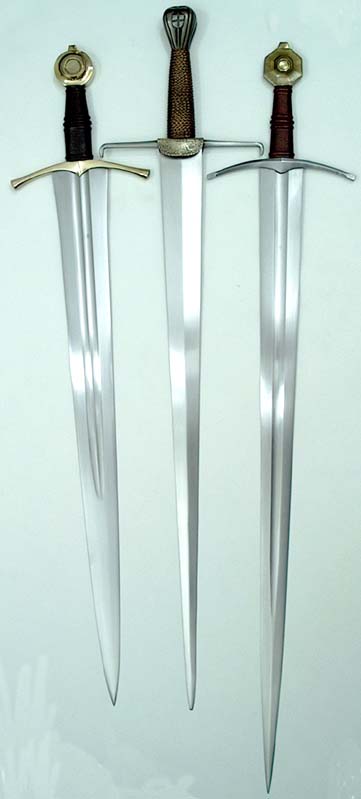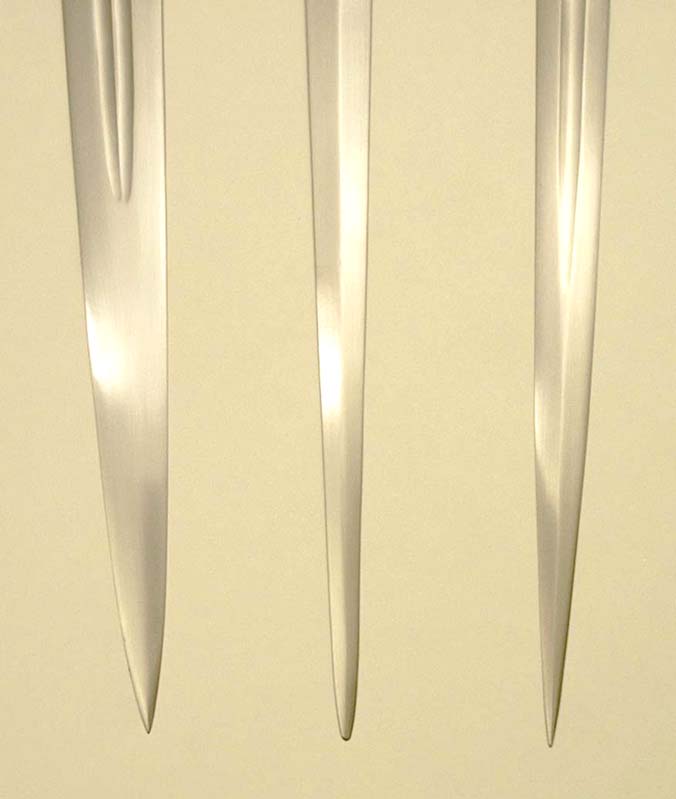I took this pic a while back and thought it might help to illustrate the differences between these three types. Pictured are my Sovereign (a XIV), my DT 2150 (a XV) and Albion's Prince (a XVI). All three blades taper for the thrust. XIV's are fullered and usually have a non-reinforced lenticular cross-section. XV's have a diamond cross-section but no fuller. XVI's are fullered and have a reinforced diamond cross-section tip.
Oakeshott puts Type XIV into his first group of swords (X-XIV): swords designed to defeat maille. Types XV and XVI are designed to oppose plate. In general, XIV's should cut better than the other types against lightly armoured targets. XV's will probably be the best thrusters. XVI's combines features of both.
For more info, we have spotlights on each type in the Features page.

Sovereign, Visconti sword, Prince. (Sorry about the quality of the first pic. I tried to fix some crap in photoshop unsuccessfully)

tip cross sections